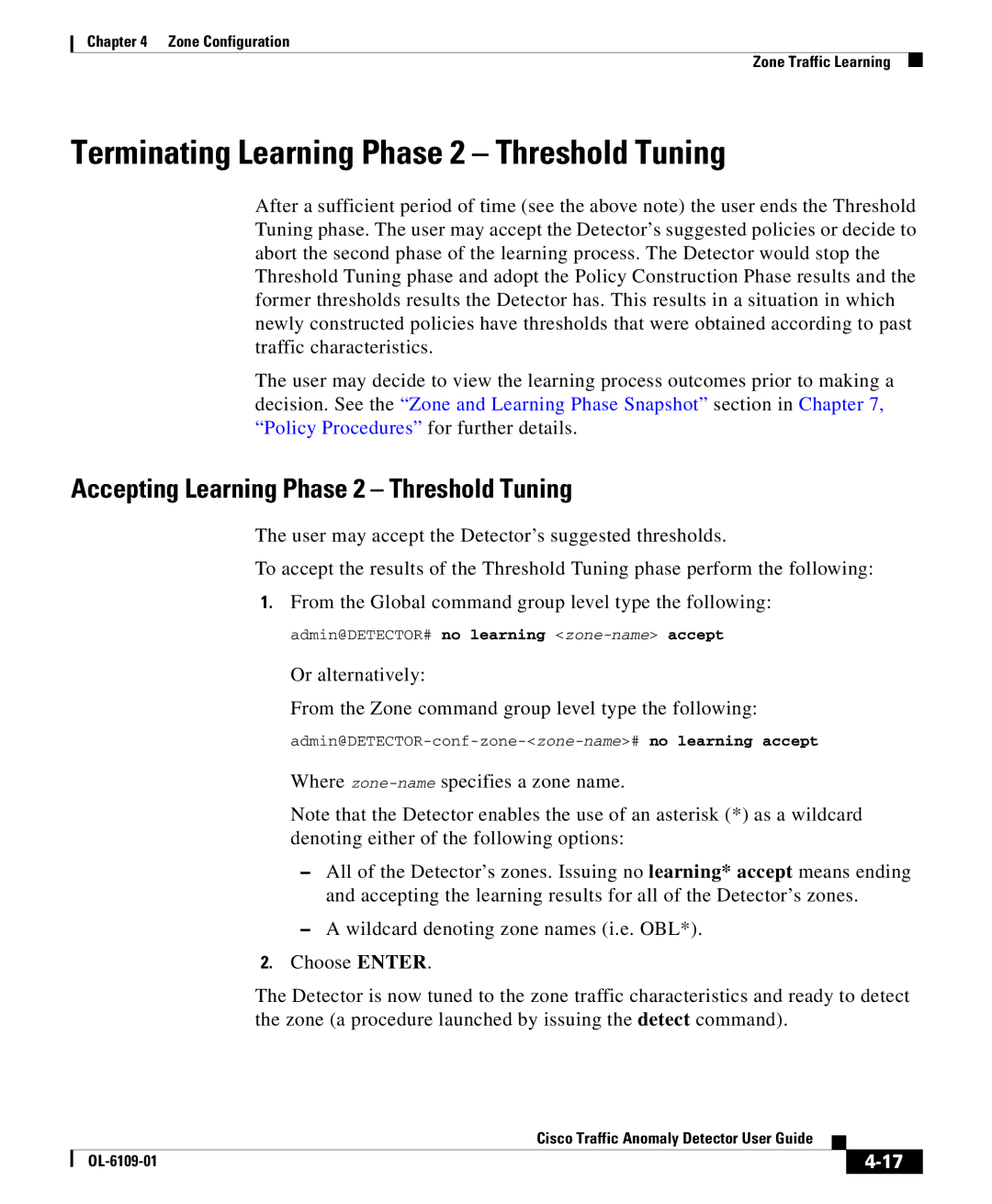OL-6109-01 specifications
Cisco Systems OL-6109-01 is a versatile online training course designed to equip IT professionals with the knowledge and skills to prepare for the Cisco Certified Network Associate (CCNA) certification. This specialized program introduces participants to a wide array of networking concepts, addressing critical areas that are foundational for careers in networking and IT.One of the main features of the OL-6109-01 course is its comprehensive curriculum that covers essential networking topics. Participants engage with content focused on building and configuring network systems, including foundational principles of routing, switching, and WAN technologies. This ensures that learners gain both practical skills and theoretical knowledge, making them proficient in handling diverse networking scenarios.
The course also delves into the latest industry-relevant technologies. Cisco's emphasis on the Internet of Things (IoT), cloud computing, and network security is reflected in the training modules. With the ever-increasing demand for network security, OL-6109-01 emphasizes cybersecurity fundamentals, enabling learners to understand potential threats and learn best practices for securing network infrastructures.
An essential characteristic of the OL-6109-01 course is its interactive learning experience. Using a mix of video lectures, hands-on labs, and quizzes, the course fosters an engaging environment for learners. Practical lab exercises allow participants to simulate real-world networking tasks, which enables them to enhance their troubleshooting and problem-solving skills.
Furthermore, Cisco Systems ensures that the OL-6109-01 course aligns with the latest networking trends and technologies. Regular updates to the course content make sure that learners are equipped with current knowledge, preparing them for future developments in the networking field.
In addition to delivering foundational knowledge, the OL-6109-01 course also features preparation tools for the CCNA exam. Practice tests and evaluation metrics help participants assess their readiness, providing a pathway to achieve Cisco certification. Overall, the OL-6109-01 course represents a substantial investment in professional development for anyone looking to advance in the networking domain. Its blend of essential content, modern technologies, and practical practice positions learners for success in a competitive industry.
